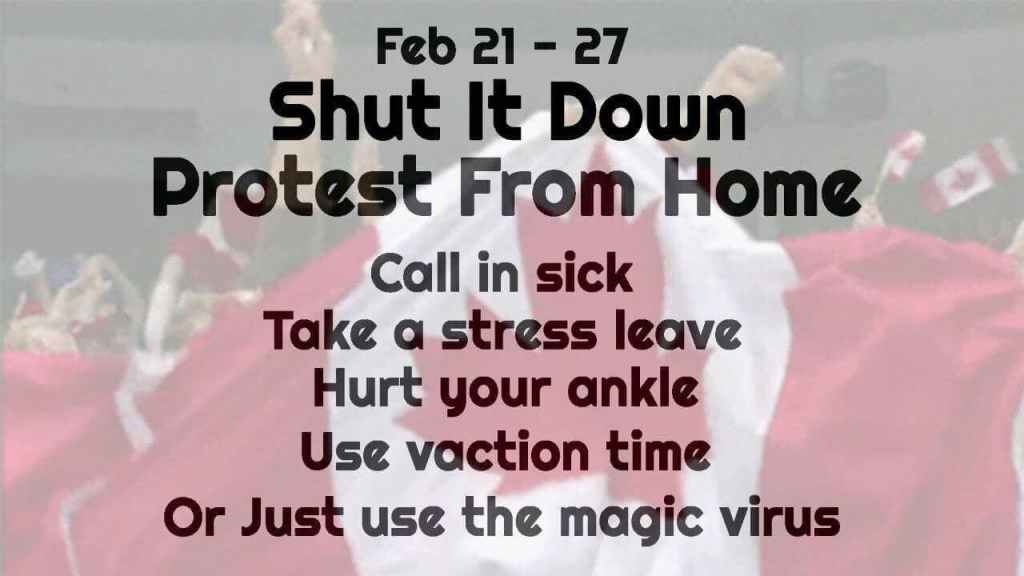Also :
Justin Trudeau's use of the Emergencies Act 'has set a dangerous precedent,' the non-partisan Canadian Constitution Foundation said

nationalpost.com
'Legal standard not met': Two court challenges filed over Trudeau's use of Emergencies Act
Justin Trudeau's use of the Emergencies Act 'has set a dangerous precedent,' the non-partisan Canadian Constitution Foundation said
Two separate legal challenges were filed on Thursday against the federal Liberal government’s invocation of the Emergencies Act by civil rights organizations accusing Prime Minister Justin Trudeau of setting a dangerous precedent by invoking the act for reasons they say fall far short of the necessary legal thresholds.
“The government emergency declaration is unprecedented and seriously infringes the charter rights of Canadians,” said Noa Mendelsohn Aviv, executive director of the Canadian Civil Liberties Association (CCLA) in a Thursday afternoon press conference.
“The government brought in an extreme measure that should be reserved for national emergencies, a legal standard that has not been met.”
Emergency powers, she said, cannot and must not be normalized in Canadian society.
Joining the CCLA in challenging the government was the
Canadian Constitution Foundation (CCF).
“The federal government has invoked the Emergencies Act as a matter of political convenience,” said CCF Litigation Director Christine Van Geyn in a press release announcing the foundation’s legal challenge.
“This is illegal and violates the rule of law, and that’s why we are challenging the government in court.”
The prime minister invoked the Emergencies Act on Monday, insisting it was necessary to bring an end to protests, initially provoked by the federal government imposing vaccine mandates on cross-border truckers, that have snarled downtown Ottawa and interfered with Canada–U.S. border crossings. Freedom Convoy supporters have parked an array of transport trucks, heavy equipment and passenger vehicles in front of Parliament Hill and throughout the Ottawa city centre.
That action was soon followed by convoy-affiliated blockades at several Canadian border crossings, starting near Coutts, Alta., two weeks ago and spreading elsewhere — most notably a days-long blockade at the Ambassador Bridge, a vital trade link between Canada and the United States.
Protesters in downtown Ottawa awoke Thursday morning to find crews erecting fencing around Parliament Hill and throughout downtown — part of efforts, interim Ottawa Police Chief Steve Bell said, to establish a secure zone encompassing nearly the entirety of downtown Ottawa.
Police began arresting some protestors after 5 p.m., including Freedom Convoy organizer Chris Barber, who was handcuffed and led away surrounded by police while crowds shouted their disapproval.
At the same time, police closed exits on Highway 417 through the city’s core.
Nearly 100 police-manned checkpoints will control access into the secure zone, barring those with no lawful purpose from entering the area.
The prime minister on Thursday defended his use of the Emergencies Act and described it as a measure of last resort. However there have been questions raised by security experts as to why the government needed to invoke the act, considering police managed to largely clear the border blockades before the emergency measures came into effect.
CCLA Criminal Justice Director Abby Deshman said legislation tabled in the house don’t align with the prime minister’s assurances the new powers will be “geographically targeted” and “limited.”
“The actual written text of these orders is not limited to specific cities, it’s not limited to specific provinces, it applies across the entire country to every single Canadian,” she said.
“They are not geographically limited, they do not target specific protests, they apply universally across the country.”







 thenationaltelegraph.com
thenationaltelegraph.com
pic.twitter.com/90MK2o6QWH

